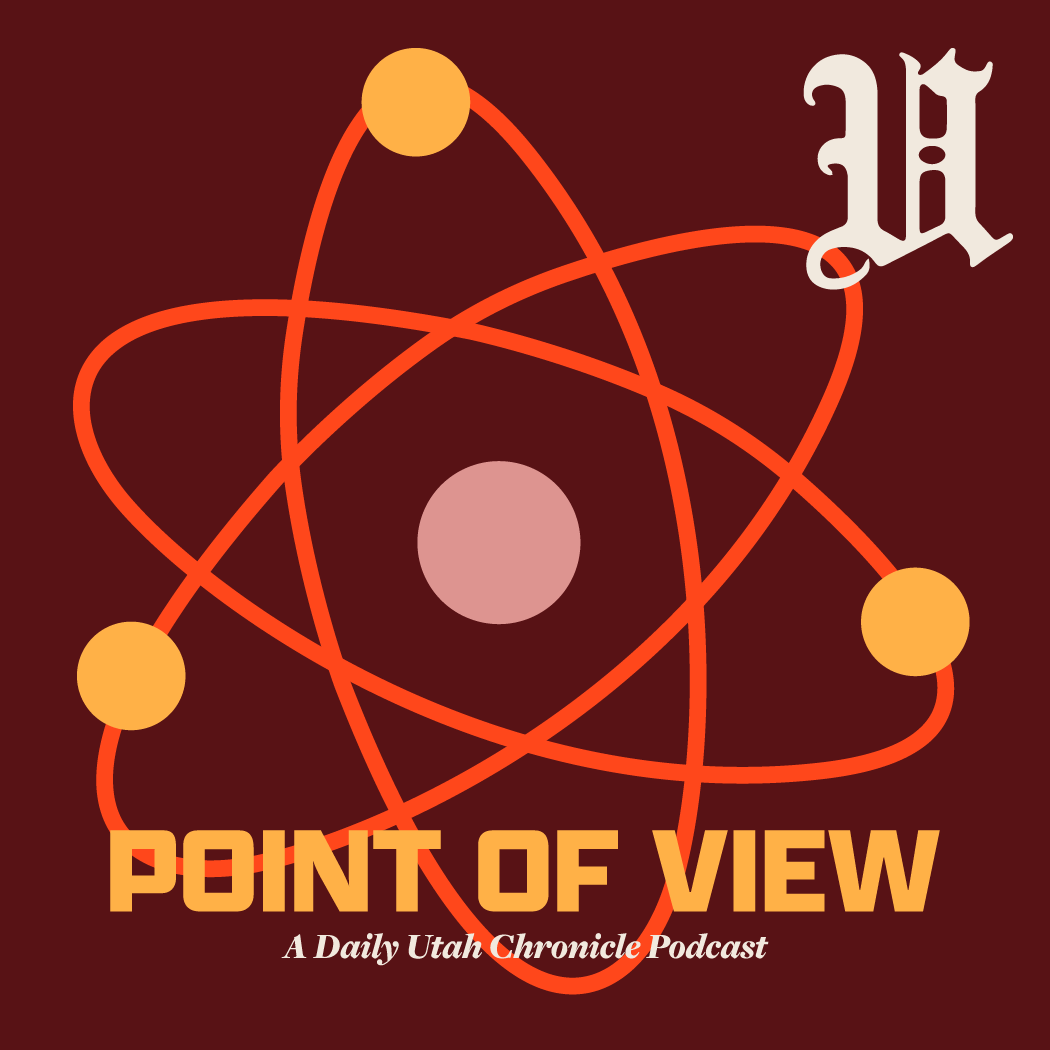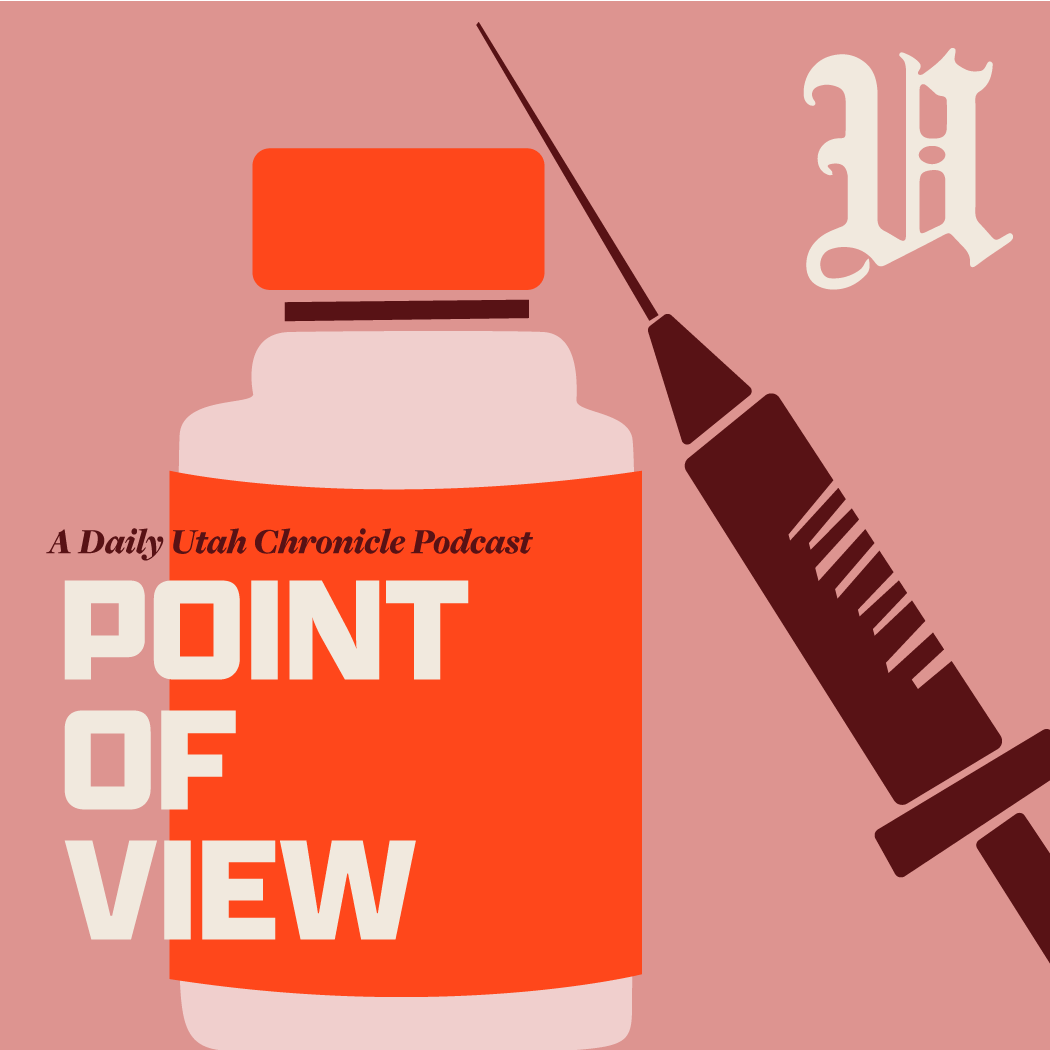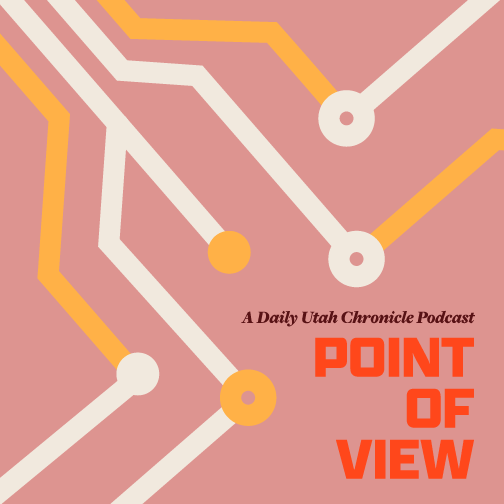Transcript:
Estella Weeks: Hi and welcome back to Point of View, The Daily Utah Chronicle’s opinion podcast. My name is Estella Weeks, your host for today’s episode, and I’m joined by Luke Gordon. Luke is an opinion writer here at the Chrony and we are going to be talking about AI. Luke, if you wouldn’t mind kind of giving a brief definition of AI?
Luke Gordon: Yeah, thank you for the introduction. So AI stands for artificial intelligence, and it’s basically a code generation technology that allows computers to stimulate human intelligence.
Estella Weeks: Cool. So Luke, what are the ways that you’ve seen students use AI for school and how do you see that power being abused?
Luke Gordon: I see it all the time with quiz and test answers, mainly, but I’ve also seen it secondarily in just writing full papers, solving math problems and just basically asking questions that won’t be answered, like accurately.
Estella Weeks: Yeah, I’ve also seen, like, computer science students use it for coding and stuff, just because now the capabilities of AI are so intense. So, I feel like there’s a lot more use to it. Why do you feel like students are using it in the first place?
Luke Gordon: Well, I feel like definitely in college, it’s easy to become overwhelmed. I mean, me, myself, I have a lot of homework per assignments due per week, and I know a lot of students are in the same boat as me, and it’s really easy to fall behind in class and that can really do something mentally to a student. So instead of reaching out for help, because they think that the help isn’t available when it is, but it’s about asking, they’ll just resort to an easy way out, which is asking AI for answers that may not be accurate. Yeah.
Estella Weeks: And it sounds like it’s wrong a lot of the time. Right? So Purdue University did a study, and they found that 52% of the time, the answers were generated incorrectly. So if you’re going into a field where there’s really little room for error, what is that going to do to the next generation’s education if we’re using AI?
Luke Gordon: I feel like it would just — AI can just be used as a crutch now, but when you get into those deeper careers where you can’t really rely on impractical methods of, you know, getting a problem solved, it’s not going to be good, because people just won’t be as efficient.
Estella Weeks: What are some of the, like, fields that really should not be using AI in their college experience?
Luke Gordon: I feel definitely engineers, anybody in pre-law, pre-med, anything very surgical like that, because there’s so much room for error — in the smallest error in those fields can really mess up big time.
Estella Weeks: And if you rely on AI to write your essays for you.
Luke Gordon: Then you’re not really learning, and you won’t develop problem-solving skills to get you past those complex situations when you’re actually at the job, you know.
Estella Weeks: So do you think that in this situation, banning AI could be a solution for universities, or are students just gonna, like, find ways around it?
Luke Gordon: I think it’ll help a little bit for people that don’t use it as much. But for people who heavily rely on it, I don’t think it will do that much because there’s still a bunch of other things students can find answers through, like just searching it up on Google. I know Quizlet’s a big one, you know, but if they need to cheat, they’ll find a way to cheat. So it’s more about diving into the deeper issue of why students need to cheat in the first place, you know.
Estella Weeks: And you think that’s due to, like, stress and being overwhelmed?
Luke Gordon: Yes, yeah, definitely.
Estella Weeks: Have you found that there is any, like, positives to using AI? I know that when I was researching about the Purdue study, they had actually had an AI initiation, like initiative, in their university, and they’ve been using it for grading and all of those kinds of things. So do you think that there is any benefit to it?
Luke Gordon: I think there is a couple of benefits of it. I think, first, for starters, writers, you can get a really good outline from ChatGPT. Just don’t ask them to code any information. You know, like a basic outline, what I should be writing about, even grammar check stuff like that is good. And I’ve also talked to a couple of professors in the writing department, and they’ve all said good things about it. About, you know, grammar checking, outline, stuff like that. So it doesn’t appear to be that much of a problem when it comes to writing, but it definitely might be a problem in the future.
Estella Weeks: And when does it become a problem in the future?
Luke Gordon: When students are really relying on it instead of using it as a tool. Yeah, instead of using it as a tool to help them, using it as a tool to rely on.
Estella Weeks: And, like, get through assignments fast?
Luke Gordon: Yeah.
Estella Weeks: So it’s kind of a joke when people are saying, like, “Oh, my job’s going to be taken by AI,” but do you feel like there’s an actual real concern for that or do students not need to be worried about that? Do you need to be, you know, like, what can you do to be proactive? Do you see that being a problem?
Luke Gordon: Yeah, I wouldn’t worry too much about being concerned about jobs being taken by AI. I think definitely about warehouse jobs manufacturing stuff that could easily be taken by AI, but jobs that require social empathy and emotional components will stick to humans for a very long time because we haven’t really figured out how to give a robot empathy, which really would not be good.
Estella Weeks: That’s kind of scary. So finally, what are some resources that can be found on campus to help students if they’re really finding that they want to use AI — what options do we have here at the U to help students kind of combat that feeling?
Luke Gordon: We actually have a lot of options here at the U. We have the free writing center — well, sorry all these are free — but we have the writing center, which if you schedule an appointment, you’ll have a free consultation for a paper, like, on any paper. We have the math center for pretty much every class. There’s learning centers, and all these centers are free for students, and the website will be linked in this transcript for this episode.
Estella Weeks: Thank you for listening to Point of View, The Daily Utah Chronicle’s opinion podcast. Thank you, Luke, for coming on and talking about AI. My name is Estella Weeks, and tune into new episodes coming this month.
Transcribed by https://otter.ai
Host: Estella Weeks — [email protected]
Producer: Stevie Shaughnessey — [email protected] // @steviechrony
Guest: Luke Gordon — [email protected] // @lukeg0rdon




















